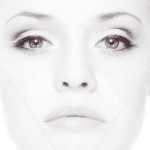Skin aging and wrinkle formation are influenced by several factors including genetics, environmental exposure (UV radiation, xenobiotics, and mechanical stress), hormonal changes, and metabolic processes (generation of reactive chemical compounds such as activated oxygen species, sugars, and aldehydes). All factors together act on the alterations of skin structure, function, and appearance. However, we know that solar UV radiation unquestionably is the single most important factor responsible for skin aging.
Protecting and treating your skin are the best ways to having a healthier and more youthful appearance. Here are some great ways to slow down the aging process of your skin…
1. Avoid the Sun and Always wear sunscreen
The sun can be very damaging to your skin so it’s incredibly important to apply a moisturizer or sunscreen that has UV-blocking ingredients. As little as a 10 minute exposure to UVA and UVB rays can result in changes in your skin that lead to wrinkles in as little as 12 weeks. UVB is known to be the main culprit in causing skin cancers from sun exposure. While UVA exposure can also increase skin cancer rates, they typically don’t cause sunburn, however, they do penetrate deeply into the skin and cause wrinkles. In fact, 90% of skin changes associated with aging are caused by UVA damage.
Everyone should apply a daily sunscreen with broad-spectrum or multi-spectrum protection against both UVB and UVA. Ingredients with broad-spectrum protection include benzophenones (oxybenzone), cinnamates (octylmethyl cinnamate and cinoxate), sulisobenzone, salicylates, titanium dioxide, zinc oxide, avobenzone and ecamsule. Look for these on the back of most high quality sunscreens.
 2. Use Retinoid creams
2. Use Retinoid creams
The only FDA-approved topical treatment for wrinkles is Tretinoin, known commercially as Retin-A. Retinoids minimize the appearance of wrinkles, bolster the skin’s thickness and elasticity, slow the breakdown of collagen (which helps keep skin firm), and lighten brown spots caused by sun exposure. They work by prompting surface skin cells to turn over and die rapidly, making way for new cell growth underneath. They hamper the breakdown of collagen and thicken the deeper layer of skin where wrinkles begin.
3. Proper Diet: Increase fish and fruits/vegetable intake and cut out the sugar
Salmon, along with other cold-water fish, are great sources of protein and is an immense source of an essential fatty acid known as Omega-3. Essential fatty acids help nourish skin and keep it plump, glowing, and youthful.
Fruits and vegetables are full of antioxidant compounds. These compounds fight damage caused by free radicals (unstable molecules that can damage cells), which in turn helps skin look younger and more radiant, and protects against some effects of photoaging.
Sugar is one of the most addictive substances found in food these days and is unfortunately the antithesis for anyone who wants to retain a youthful appearance. Excess sugar in your blood binds to proteins, including collagen, which in turn causes the acceleration of the aging process.
4. Increase vitamin C intake and apply it topically
Vitamin C can benefit skin in two ways. First, vitamin C is essential for the synthesis of collagen, a key structural protein in skin. Adding vitamin C to a culture of skin cells (fibroblasts) dramatically increases the synthesis of collagen. Second, vitamin C is an antioxidant and can help reduce skin damage caused by free radicals. So, when vitamin C is properly delivered into skin cells, there is a good chance to reduce wrinkles and improve skin texture.
Diet has a huge impact on the appearance of your skin. According to a study published in the American Journal of Nutrition, women who were over 40 and had the greatest amount of vitamin C in their diet were less likely to develop wrinkles when compared to women who consumed lower levels.
There are many great sources of vitamin C, including broccoli, sprouts, oranges, kiwis, red peppers, and tomatoes. You can also take supplements to increase your vitamin C intake although getting it in your diet is preferable.
Am J Clin Nutr. 2007 Oct;86(4):1225-31.
Dietary nutrient intakes and skin-aging appearance among middle-aged American women.
Cosgrove MC1, Franco OH, Granger SP, Murray PG, Mayes AE.
 5. Consider cosmetic treatments
5. Consider cosmetic treatments
Cosmetic treatments such as botox, fillers, chemical peels, laser resurfacing, and dermabrasion are not for everyone, but they can be a very effective way to get rid of any unwanted wrinkles on your face. There are many excellent plastic surgeons across the States, including Dallas, who will advise you on the benefits and risks of cosmetic treatments for your skin.
6. Stop smoking
It’s not a secret that smoking is very damaging to your health and is a leading cause of lung cancer and heart disease. However you might not be aware that smoking is also very bad for the appearance of your skin. The reason for this is that smoking creates collagen and elastin-damaging enzymes, which cause the sagging of the skin that you see in many smokers.
7. Alpha-hydroxy acids (AHAs) and Idebenone
AHAs are natural fruit acids that eliminate the top layer of dead skin cells, reducing the appearance of fine lines and wrinkles, particularly around the eyes. Some believe that in higher concentrations, AHAs may help stimulate collagen production.
Idebenone is a relative of coenzyme Q10 and is a super-powerful antioxidant. In one study published recently in the Journal of Cosmetic Dermatology, investigators found that with just 6 weeks of topical use, there was a 26% reduction in skin roughness and dryness, a 37% increase in hydration, a 29% decrease in lines and wrinkles, and a 33% overall improvement in sun-damaged skin.
J Cosmet Dermatol. 2005 Sep;4(3):167-73.
Clinical efficacy assessment in photodamaged skin of 0.5% and 1.0% idebenone.
McDaniel DH1, Neudecker BA, DiNardo JC, Lewis JA 2nd, Maibach HI.
8. Cut down alcohol intake
Alcohol is another thing you should avoid if you want your skin to look its best. Alcohol dehydrates your entire body and puts a strain on vital organs. Anything that causes dehydration is never good for your skin. Prolonged alcohol use will certainly speed up the aging process and take a big toll on your overall appearance.
 9. Get plenty of exercise and plenty of sleep
9. Get plenty of exercise and plenty of sleep
Exercise is always recommended for general health but an extra motivating factor to keep your visiting the gym regularly is that exercise is also great for keeping your skin firm and toned. In fact, it has been shown that women who exercise regularly have firmer skin when compared to less active women. You should aim to schedule at least two to three 30 min sessions of high intensity exercise per week for the best results.
When you don’t get enough sleep, the body produces excess cortisol, a hormone that breaks down skin cells. When you get adequate rest you’ll produce more human growth hormone, which helps skin remain thicker, more elastic, and more toned.
10. Wash your face before bed and Exfoliate
While most people wash their faces in the morning, the most important time of day to wash your face is at the end of the day, before you go to bed. This is because any make up, bacteria, or dirt that’s left on your face overnight can cause the skin to become irritated, the pores to be clogged, and result in breakouts. A gentle face wash before bed can therefore do wonders for improving the appearance of your skin.
Be careful though, too much of a good thing is usually bad, be cautious not to use harsh soaps or to over do it, drying out your skin strips it of its natural oils and moisture which is vital to youthful appearing skin.
It’s extremely important to exfoliate if you want to keep your skin looking youthful. Exfoliating removes the top, dead layer of skin and speeds up the natural renewal process of the collagen and skin. Many people choose to exfoliate using scrubs but chemical peels using glycolic acid and lactic acid have become much more popular in recent years due to the fact that they provide very even results and give your skin a healthy glow.


 2. Use Retinoid creams
2. Use Retinoid creams 5. Consider cosmetic treatments
5. Consider cosmetic treatments 9. Get plenty of exercise and plenty of sleep
9. Get plenty of exercise and plenty of sleep



